Devices with cables that can't reach any electrical outlets can be powered using extension cords. However, knowing if you can use an outdoor extension inside your house is critical. We've done thorough research on this matter and discovered the top answers to this question.
It is safe to use outdoor extension cords for inside use. Although they are known to be rugged and can withstand harsh conditions, it is still essential to inspect them regularly to prevent any fire risk.
You must abide by some rules to safely use an extension cord. In this article, we will discuss using outdoor extensions inside, the difference between indoor and outdoor extensions, and the safety measures when using extension cords. So, keep reading to find all the exciting information about the extension cord.
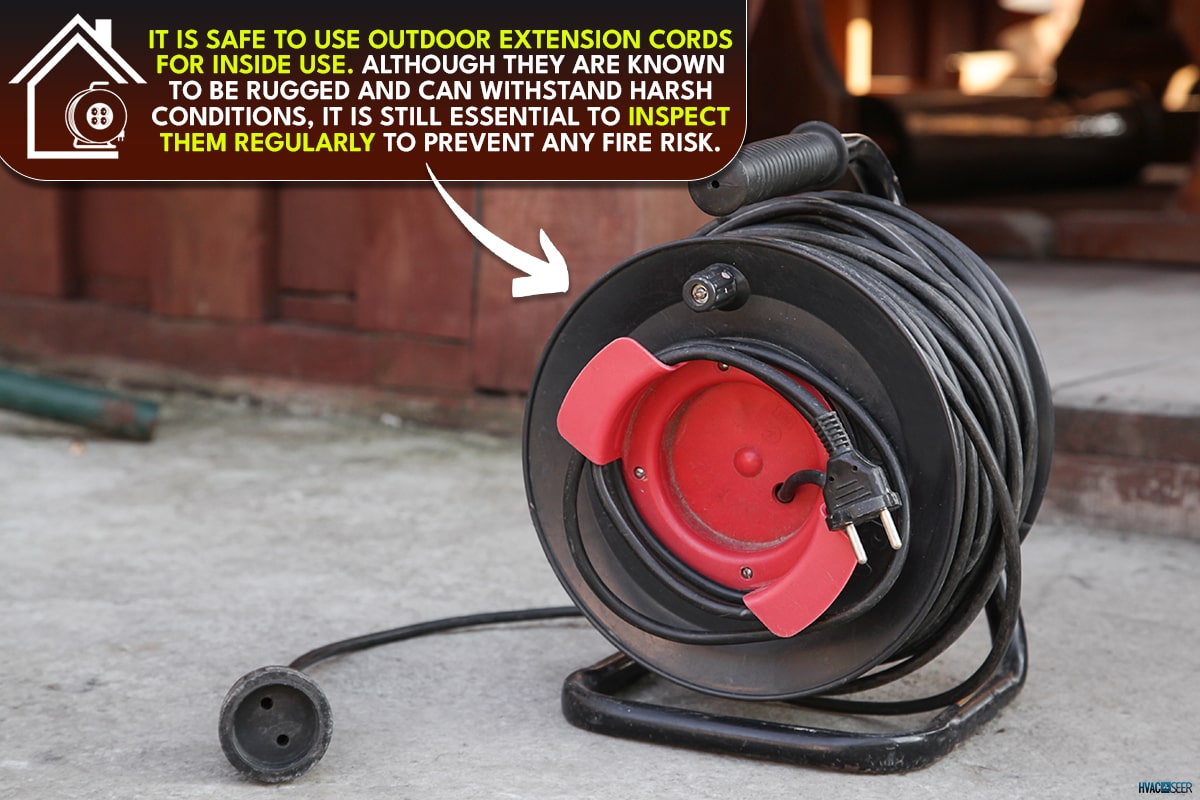
Using An Outdoor Extension Cord Inside
Extension cords are the ideal answer when you need to power an appliance or machine whose cord cannot reach an outlet. Outdoor extension cords are excellent for outdoor activities because they are rugged and meant to endure harsh weather conditions.
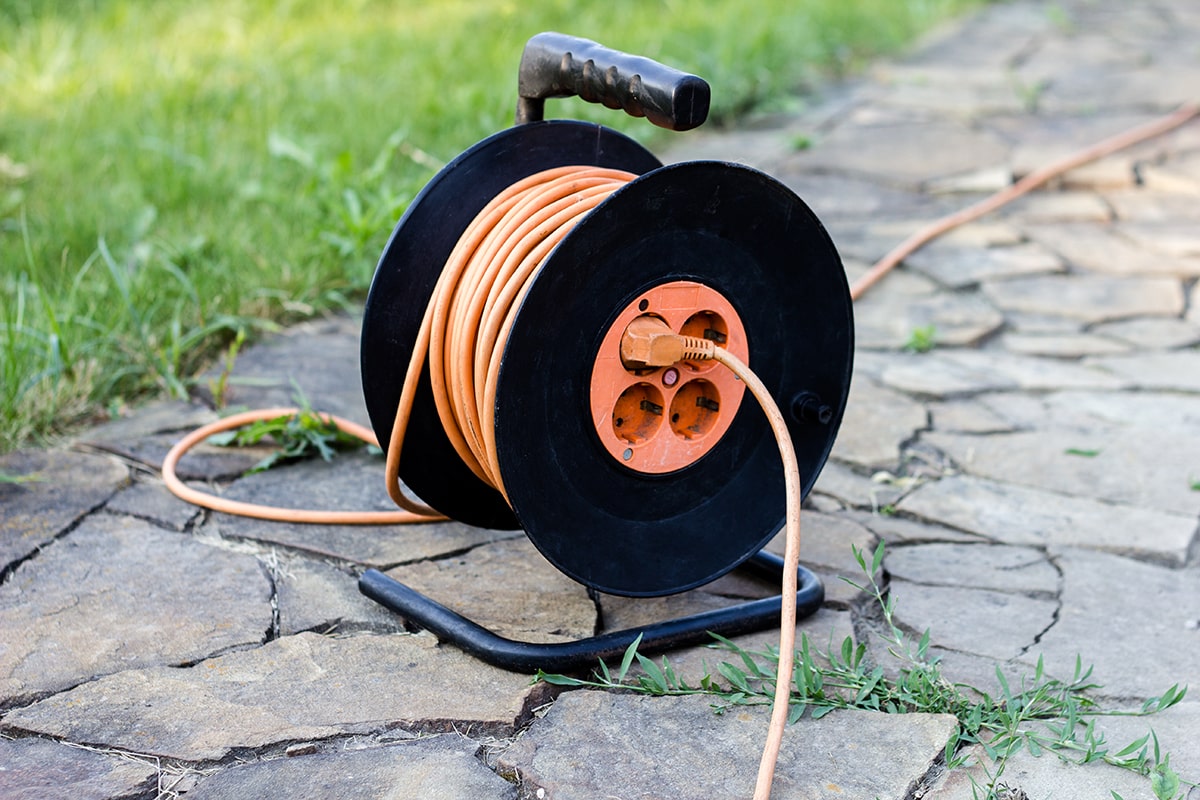
In every respect, outdoor extension cables excel above indoor versions. Therefore, using an outdoor extension cord indoors is safe. You can use an outdoor extension cord inside but still observe safety precautions.
However, an indoor extension cord is prohibited for outdoor use as it is not built for rugged use. It's important to realize that not just any extension cord will work because it could cause a fire when not correctly used.
Not all extension cables are created equal. Thus, neglecting these traits could pose a significant risk to people's safety. Remember to select and utilize extension cords safely.
Also, inspect them regularly to ensure that no portion of the outdoor extension cable poses a risk of electric shock or fire.
Click here to see this 100 ft outdoor extension cord on Amazon.
Difference Between Outdoor And Indoor Extension Cords
Indoor cords are typically short and colored white or brown. On the other hand, orange rubber or vinyl extension cords are used outdoors. Their vibrancy is deliberate to improve visibility to prevent tripping or being run over by vehicles or other equipment.
In terms of lengths, outdoor extension cords are significantly longer than indoor cords, reaching as long as 150 feet.
The insulation is one of several distinctions between extension cables used indoors and those used outdoors. Outdoor extension cords are made with protective insulation, whereas indoor cords consist of two or three insulated wires that have been joined together without an outer sheath.
In terms of prongs, indoor extension cords typically have only two prongs, while outdoor extension cords have three prongs.
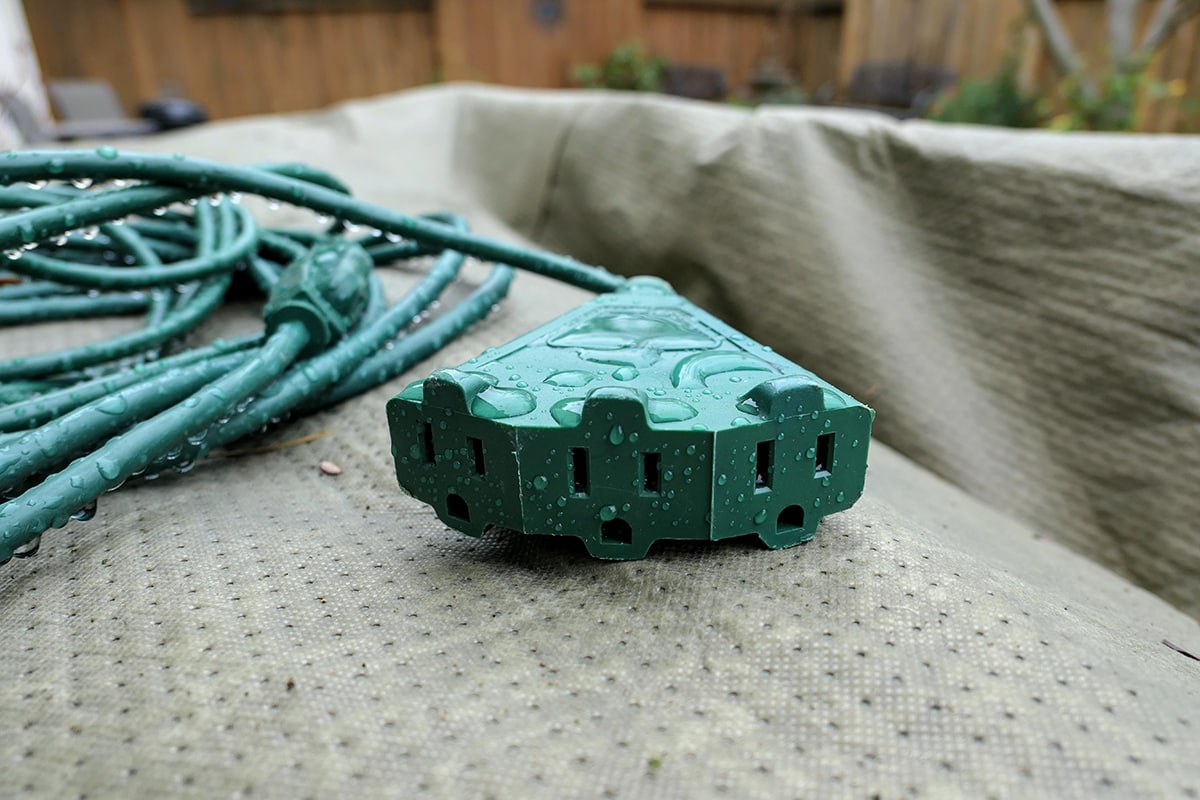
Outdoor cords are heavy-duty and made to survive temperature changes and to stop moisture from penetrating inside, while indoor cords are less insulated and more vulnerable to bodily harm. They are typically used for small electrical items, like home appliances or computer equipment.
Outdoor extension cords have greater gauge and amp ratings than indoor extension cords. Thus, they are also more expensive.
Also, your outdoor gadgets' power requirements won't likely be met by indoor extensions. Indoor extension cords are designed only for low voltage, light-duty applications.
All electrical extension cords are marked with amperage and voltage specifications, as well as whether they are meant for indoor, outdoor, or both uses.
Click here to see this indoor extension cord on Amazon.
Considerations When Using An Extension Cord
Safety when using extension cords is crucial because if they are not handled properly, they might cause fires and endanger your safety. When utilizing extension cords, keep your house secure by following these safety measures:
Check Cords
Before use, check cords for damage. Those that are broken should be changed right away. Additionally, ensure the plugs are fastened tightly to the cord on both ends and are not slack or allow exposed wires to protrude above the plug.
Proper Usage Of Indoor And Outdoor
Extension cables can be handy both indoors and outside. But many people fail to use caution while using extension cords and are unaware of their risks and potential problems.
Extension cables should be adequately rated for their intended purpose, whether indoor or outdoor. You should use only extension cables designated for outdoor use for outdoor projects.
Keep any outdoor extension cords away from direct sunlight and water, even though they are intended for outdoor use. Moisture can short out an electrical circuit and result in an electrical fire or electrocution if it gets inside one.
Utilizing The GFCI Circuit Breaker
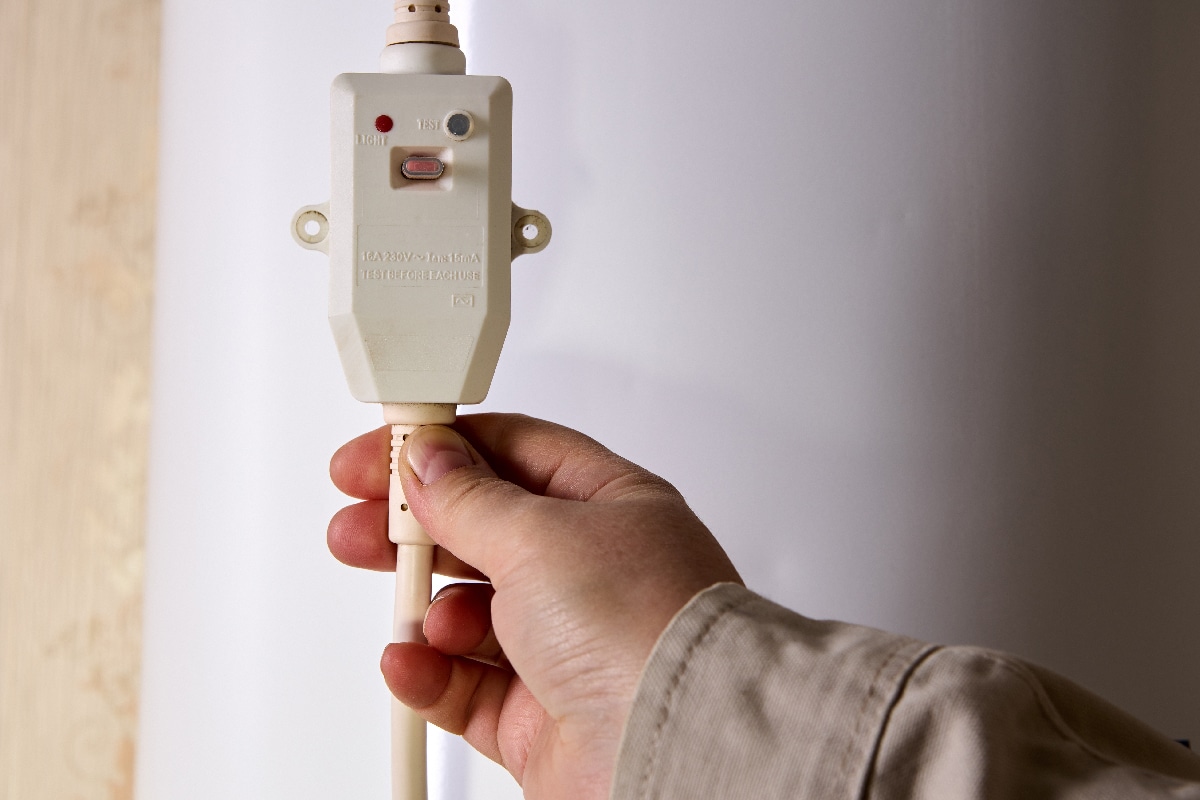
Circuit breakers can protect your appliances from overloads and short circuits. Consider investing in a GFCI extension or adapter to increase further the safety of using extension cables. The GFCI protection helps protect users from electric shock when using the outlet.
It immediately turns off if it detects abnormal electricity flow passing through your circuit. Always plug the GFCI into your outlet before plugging in your outdoor extension wire to prevent electric shock.
Click here to see this GFCI extension cord on Amazon.
Do Not Overload
Each cord has a maximum amperage rating or a maximum amount of electricity it may safely carry. Ensure the cord can withstand the electrical current required by each electrical gadget you put into it before using it.
The bigger the wire, the greater the electrical current it can safely handle. Shorter cords of the same gauge can carry more current than longer cords can.
Remember to avoid attempting to join extension cords together. "Chaining" extension cords together has a substantial fire risk due to heat production.
Also, remember that extension cables are only used as short-term wiring solutions. Consider improving your home's electrical system if you discover that you frequently use them.
Using Prong Plugs
Never use three-prong plugs on outlets with two slots because heat cannot escape if a cord is covered, which could pose a fire risk.
Force Fitting
Never remove the grounding pin to fit an extension cord into a two-prong outlet. This method can result in electric shock. Install a new outlet instead of eliminating the third prong.
Visibility
Most of the time, people prefer that their extension cords be hidden, and cover them with carpets or rugs. An enclosed space is quite worrisome for your extension cord. Heat cannot escape from an enclosed extension cord, which could start a fire.
Ensure that extension cords are visible. To prevent creating a trip hazard, select cords with vivid coloring when powering tools.
Does The Extension Cord Use Electricity When You Leave It Plugged In?
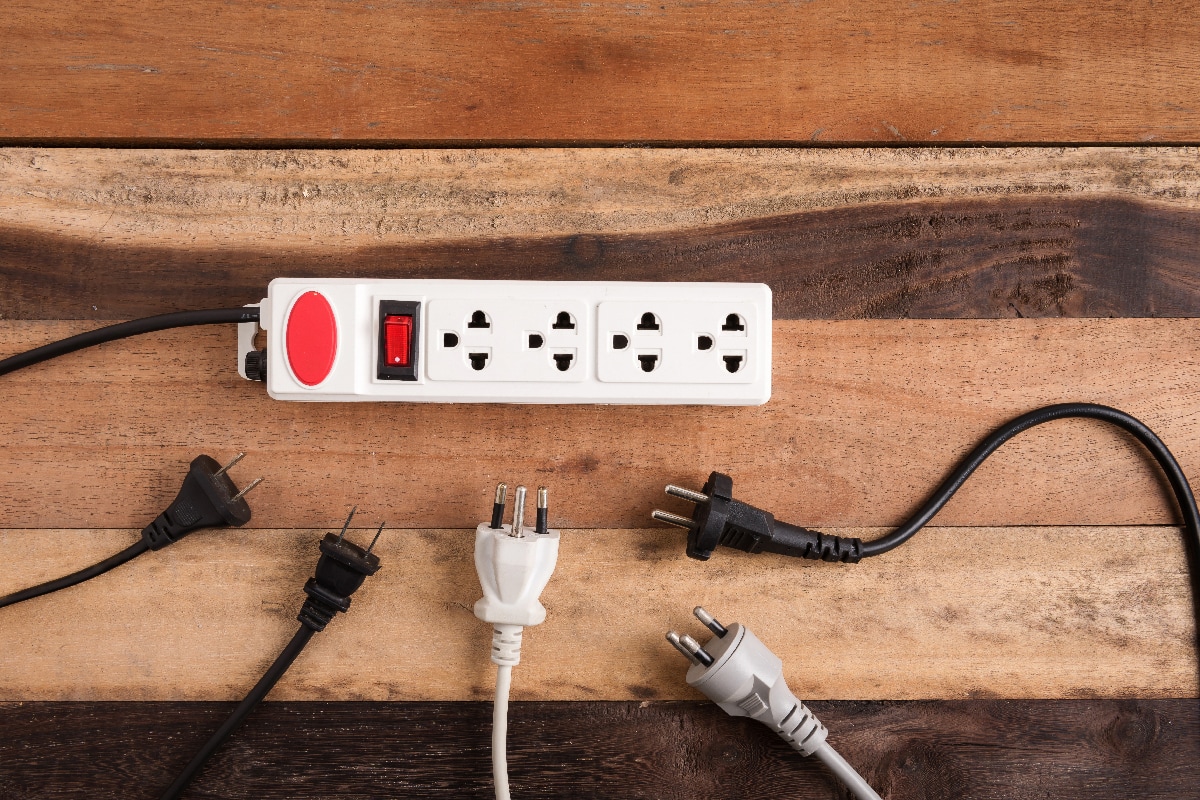
Extension cords serve as a conductor for the electricity that powers the equipment connected to its outlets. Hence, it does not consume electricity if nothing is plugged into it. The current cannot flow unless a plug completes the circuit and an appliance is turned on.
For instance, while you can only use some temporarily, others are intended to be left outside all year. Always remember to unplug extension cords when they are not in use to prevent potential safety issues.
When Should I Replace My Extension Cord?
Extension cords are unquestionably essential since they allow us to extend power to hard-to-reach areas. But with time, heat, wear, or dampness might damage them.
These products will eventually lose effectiveness because they were only made to withstand a particular time. An extension cord's rapid degeneration caused by prolonged use over time poses a risk of electric shock or fire.
One must replace it if unsafe symptoms appear, such as cracked insulation, loose plug, hot wires, and nailed cords. For your protection, you must use extension cords correctly. You must consider a crucial aspect of electrical safety in your house or workplace.
In Closing
Extension cords are helpful for temporary use in places where you can't access an outlet, but they are only secure when used correctly. It's crucial to pick the proper extension cord type to maintain electrical safety and avoid house fires. Consider the advice we have mentioned above to ensure your external cords keep you secure.
If you intend to connect many devices, sum up all the amp requirements to be sure you won't overload the extension cord. Read the instruction for the cord to learn how to use it properly and how much power it consumes. Before you leave, we have various posts that you might want to check out:
What Extension Cord Do You Need For An Air Conditioner?
Radon Fan Keeps Tripping GFCI – Why And What To Do?



